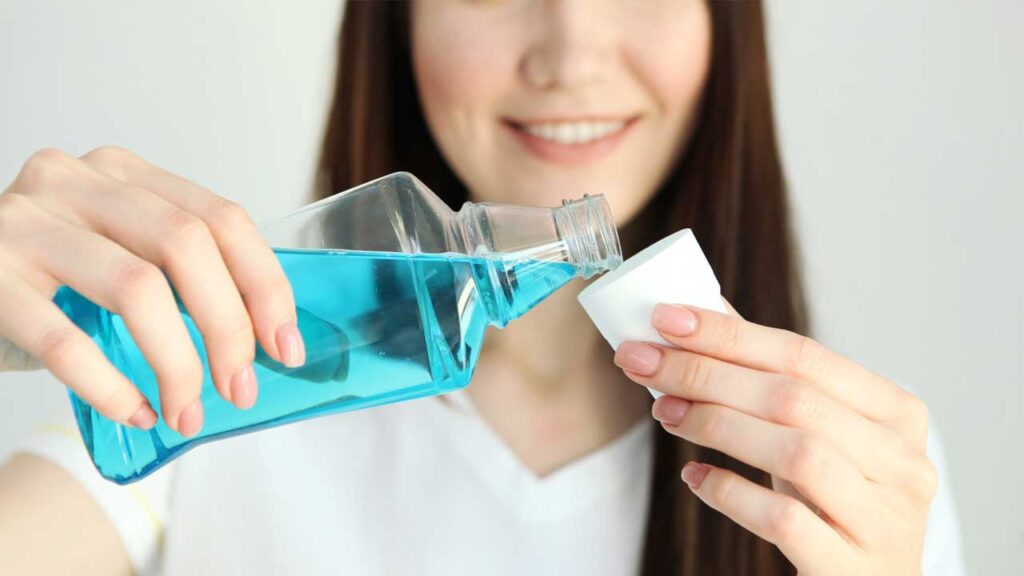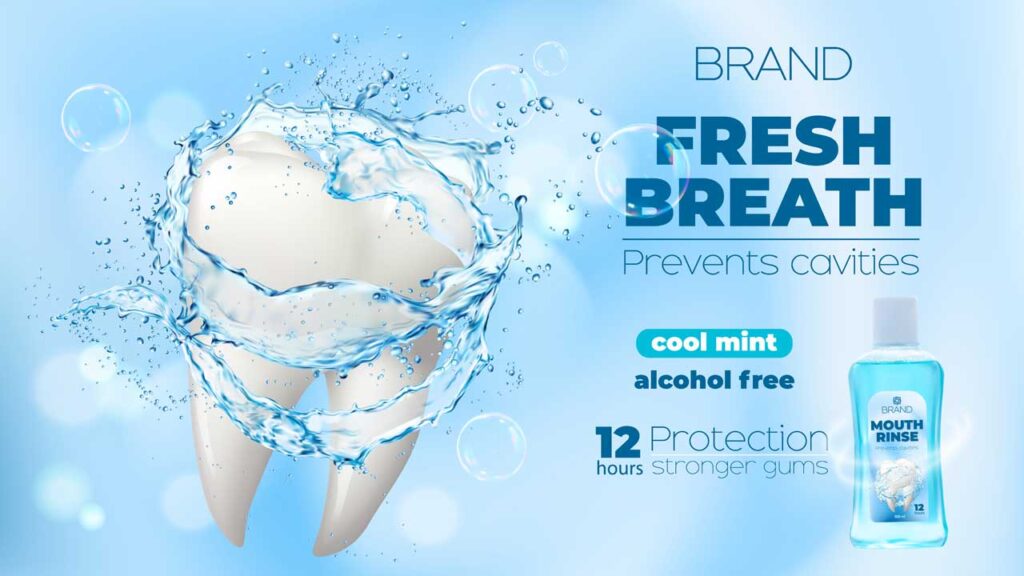Maintaining good oral hygiene is crucial for preventing tooth decay, gum disease, and other oral health issues. One important aspect of oral hygiene is the use of mouthwash. Mouthwash is a liquid solution that is used to rinse the mouth, freshen breath, and kill bacteria. In this blog, we will explore the different types of mouthwash and their uses, as well as how to choose the right mouthwash for your dental needs.

Choosing the Right Mouthwash for Your Dental Needs
When choosing a mouthwash, it is important to consider your oral health needs, any sensitivity you may have, and your personal preferences. Here are some factors to consider:
Oral health issues:
If you have a specific oral health concern, such as tooth decay or gum disease, it is important to choose a mouthwash that addresses that concern. For example, fluoride mouthwash can help strengthen tooth enamel and prevent cavities, while anti-plaque and anti-gingivitis mouthwash can help reduce plaque and inflammation in the gums.
Sensitivity:
Some people have sensitive teeth or gums, and may need to choose a mouthwash that is designed for sensitive mouths. These mouthwashes typically have a lower alcohol content and are less harsh on the teeth and gums.
Personal preferences:
Mouthwash comes in various flavors, so you may want to choose one that you like the taste of. Additionally, some mouthwash comes in a gel form and some in a liquid form, so you can choose based on your preference.
Here are some examples of different types of mouthwash:
Fluoride mouthwash:
Fluoride is a mineral that helps strengthen tooth enamel and prevent cavities. Fluoride mouthwash can be especially beneficial for people who are at a high risk of tooth decay.
Anti-plaque mouthwash:
Plaque is a sticky film of bacteria that forms on the teeth. Anti-plaque mouthwash can help reduce plaque buildup, which can prevent tooth decay and gum disease.
Anti-gingivitis mouthwash:
Gingivitis is inflammation of the gums. Anti-gingivitis mouthwash can help reduce inflammation and bleeding in the gums, which is a sign of gingivitis.
How to Use Mouthwash Properly
Using mouthwash correctly can maximize its effectiveness. Here are some steps to follow:
- Rinse your mouth with water before using mouthwash.
- Measure the recommended amount of mouthwash into a cup or the cap of the mouthwash bottle.
- Swish the mouthwash around in your mouth for the recommended amount of time (usually 30 seconds to 1 minute).
- Spit the mouthwash out, being careful not to swallow any.
- Rinse your mouth with water again to remove any remaining mouthwash.
Here are some tips for getting the most out of your mouthwash:
- Use mouthwash at a different time of day than when you brush your teeth. For example, use mouthwash at night after brushing your teeth in the morning.
- Don’t eat or drink anything for at least 30 minutes after using mouthwash. This allows the mouthwash to work effectively.
- Use mouthwash as directed on the packaging. Don’t use more or less than the recommended amount.
Mouthwash and Other Oral Care Products
Mouthwash is an important addition to your oral care routine, but it should not be used in place of brushing and flossing. Brushing and flossing remove plaque and food debris from the teeth, while mouthwash works to kill bacteria and freshen breath. Together, these three practices can help keep your mouth healthy and clean.
It is also important to discuss your oral care routine with your dentist. They can provide personalized recommendations and ensure that the products you are using are safe and effective for your specific needs.
healthcareDental health is an important aspect of overall health and well-being. Take control of your dental health with our top-quality dental health care products. Say goodbye to painful and inconvenient dental issues and hello to a brighter, healthier smile.
These products are designed with the latest technology and are made from premium materials, ensuring that you get the best results. Whether you’re looking for a solution for sensitive teeth, gum health, or just want to keep your smile sparkling, our dental health care products have got you covered.
Tired of hiding your smile due to yellowing, stained, or sensitive teeth?
ProDentim is here to help. This advanced formula whitens and strengthens your teeth, while also reducing sensitivity and promoting oral health. Say goodbye to expensive and painful dental treatments, and start enjoying a bright, confident smile with ProDentim.
Click Here to Try ProDentim now and see the results for yourself!
Struggling with tooth sensitivity, gum problems or bad breath?
Dentitox Pro is the solution you need. This natural, effective formula helps to clean and strengthen your teeth and gums, giving you a brighter, healthier smile. Dentitox Pro is made with the finest ingredients and is free from harmful chemicals, making it safe and gentle for everyday use. Say goodbye to pain and embarrassment, and start enjoying a confident, beautiful smile with Dentitox Pro.
Click Here to Order now and get 20% off your first purchase!
Click Here for Professional Teeth Whitening
FAQ
Q: Can mouthwash be used in place of brushing and flossing?
A: No, mouthwash should not be used in place of brushing and flossing. These practices are essential for removing plaque and food debris from the teeth, and mouthwash works to kill bacteria and freshen breath. Together, these three practices can help keep your mouth healthy and clean.
Q: Is it safe to use mouthwash if I am pregnant or breastfeeding?
A: It is generally safe to use mouthwash during pregnancy and breastfeeding, but it is always best to consult with your dentist or doctor before using any new oral care products.
Q: Can mouthwash be used by children?
A: Yes, mouthwash can be used by children, but it should only be used under adult supervision. Children should use a smaller amount of mouthwash and swish it around in their mouths for a shorter amount of time. It is also important to choose a mouthwash that is formulated for children.
Q: Can mouthwash cause any side effects?
A: Some people may experience mild side effects from using mouthwash, such as a burning sensation or temporary stinging. These side effects are usually not serious and go away on their own. However, if you experience severe or prolonged side effects, it is important to stop using the mouthwash and consult with your dentist or doctor.
Q: How should I store mouthwash?
A: Mouthwash should be stored in a cool, dry place, away from direct sunlight. It should also be kept out of reach of children.
Mouthwash is an important aspect of oral hygiene that can help kill bacteria, freshen breath, and prevent tooth decay and gum disease. When choosing a mouthwash, it is important to consider your oral health needs, any sensitivity you may have, and your personal preferences.
Using mouthwash correctly, in conjunction with brushing and flossing, and discussing with your dentist about your oral care routine can help ensure optimal oral health. With the right mouthwash, you can take an important step in keeping your mouth clean and healthy.

